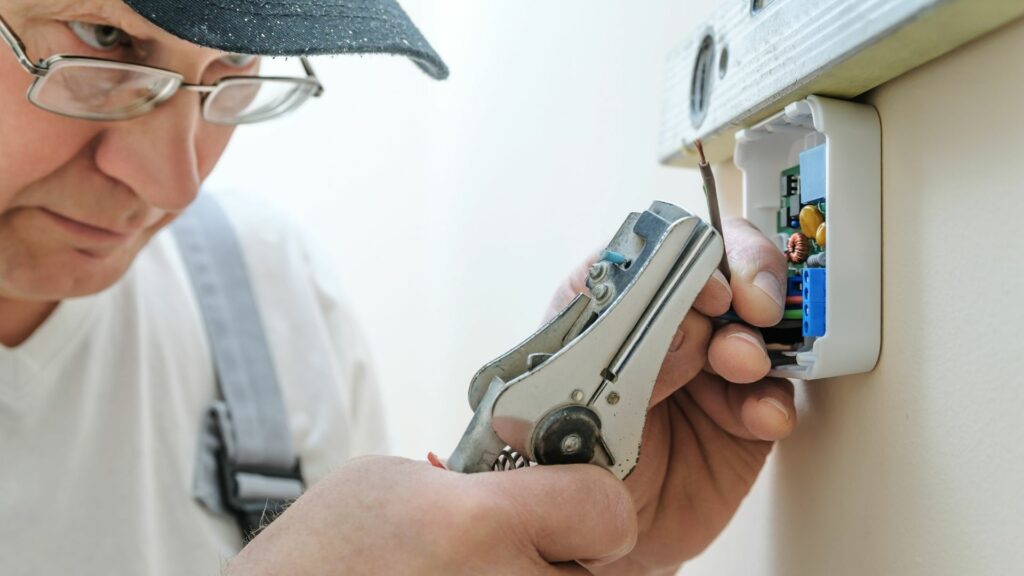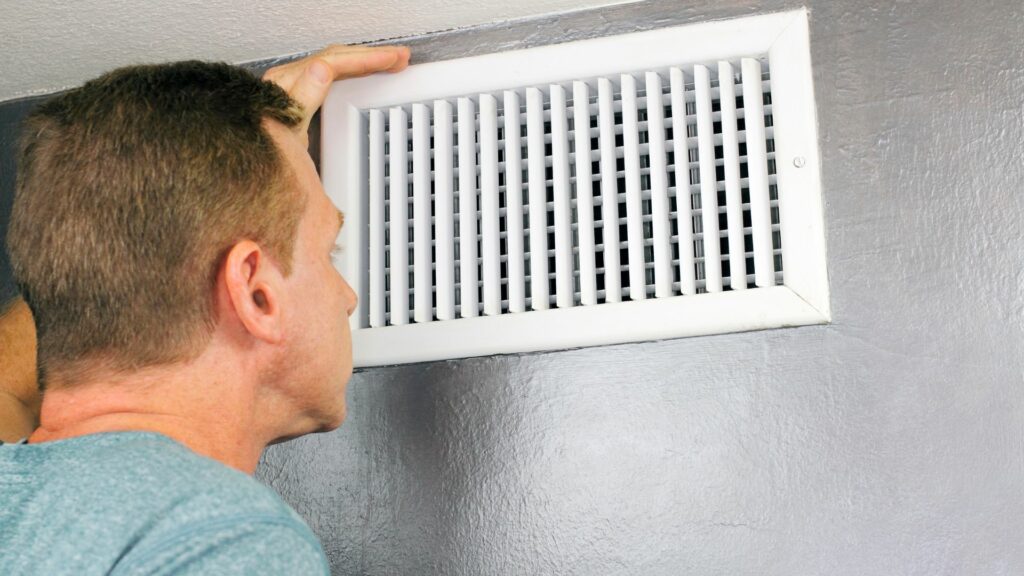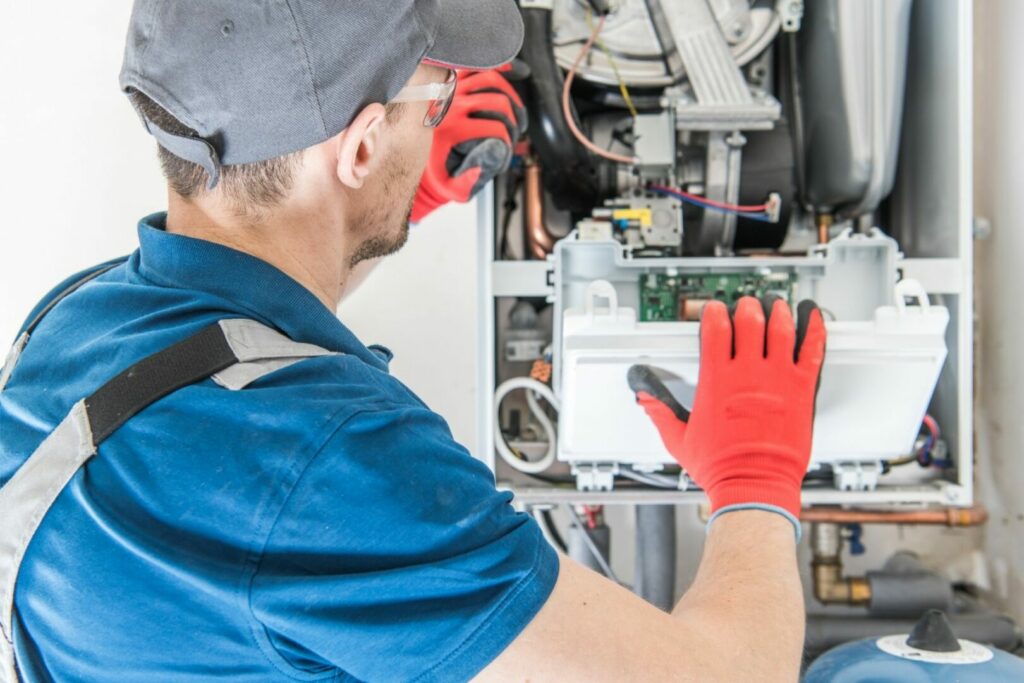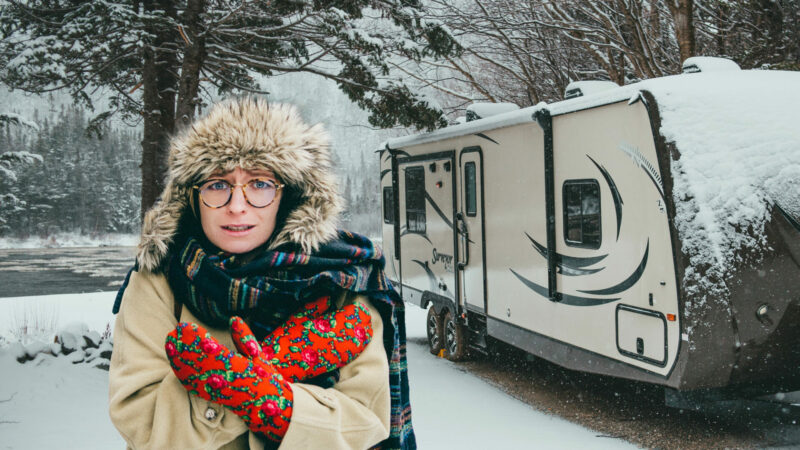Table of Contents Show
One of the worst feelings is discovering a chilly RV when it’s supposed to be warm and toasty. This is typically a sign that something broke down. It can be tempting to panic, but try to keep a cool head.
Before you bail, there are a few RV furnace troubleshooting questions you can ask to assess the situation. Let’s take a look!
How Does an RV Furnace Work?
Most RV furnaces are forced-air systems. These units use a combination of propane and electricity to keep the RV warm. The system will burn propane to create heat, and the electric system will power a fan that blows the warm air through a ducted system in the RV. This system helps ensure each room in an RV gets heat and avoids cold spots.
These systems have very simple thermostats that will activate the system when the temperature in the room drops below the threshold. Because these systems aren’t complex, it’s easy to troubleshoot issues by process of elimination.
Questions to Ask When Troubleshooting Your RV Furnace
Before you panic, because the temperature in your RV is dropping, ask yourself these questions. This can help you identify the issue and get your RV back to a comfortable temperature.
Does the Furnace Motor Start?
If the motor isn’t starting, there could be a few issues to check first. Because the thermostat activates the motor, your thermostat may be bad or have a faulty connection. So check and make sure it’s functioning correctly. If all is well, you can check your fuse panel for any blown fuses. This could be a fuse for the thermostat, module board, fan relay, or the entire motor.
You may find that one of these issues is a pretty simple fix, and you can be back in business shortly. If not, it may require you to start researching mobile mechanics or reaching out to your manufacturer for assistance.

Is the Motor Wiring Damaged?
When the temperatures drop, we’re not the only ones looking to stay warm. Mice and other rodents are notorious for getting into RVs and finding a place to call home. They’re small and agile and can work their way into just about anywhere. They’ll eat just almost anything, including electrical wires.
Make sure you turn the power to your RV off and start looking around the electrical wires to troubleshoot your RV furnace. If rodents have been making a snack out of your electrical wires, you’ll not only find chewed-up wires but likely droppings as well.
It’s also important to inspect the wires for any damage from overheating. Bad connections or faulty wires can cause the wiring to heat up and become damaged. You may not know there’s even an issue until the wiring fails or starts a fire.
Pro Tip: Try these proven methods to keep mice out of your RV if you find they’re the culprits for your broken furnace.
Are There Any Blockages at the External Cover?
The external vents on your RV furnace help you vent out air that would otherwise be dangerous. However, these vents are popular places for insects to create nests. It’s a good idea to troubleshoot this part of your RV furnace to check that the vents are free of any obstructions. If you don’t have vent covers already, install some as soon as possible.

Are the Air Vents Clean?
Your furnace depends on air flowing through it properly. Whether it’s a blocked vent or exhaust, this will reduce the system’s efficiency and could even cause it to work harder. If you’re in severe weather and already making your furnace work hard, it could over-tax the whole system.
Has Your Gas Regulator Failed?
If your RV uses propane, you have a gas regulator somewhere. Like most RV parts, these can fail as they get older. A failed regulator may prevent propane from getting into the system, which would prevent your furnace from igniting. It’s a good idea to check your pilot light regularly, especially as your RV ages, to ensure it’s working appropriately.
A properly functioning regulator will produce a completely blue flame at the pilot light. If there’s any discoloration or yellowing in the flame, you should get it replaced.
Pro Tip: Replace an old or failed regulator with one of the best RV propane regulators on the market →
Can You Hear the Igniter Click?
If you hear the igniter clicking and nothing happens, this typically means you have a spark, and there’s gas running to it. If this is the case, you’re most likely looking at a cracked igniter insulator, bad igniter placement, or failing gas valve.
Can You Hear the Thunk of Your Gas Valve?
If you hear a distinct “thunking” noise, it’s likely coming from your gas valve. This often means something is disrupting the flow of gas. A blockage in your gas lines from bugs or other debris is relatively common in RVs, especially if they sit in one place for too long.
Can You Smell Propane?
If you can smell propane, you may need to troubleshoot a leak in your RV furnace propane system. This can be extremely dangerous. You should take it seriously if you’re smelling propane. Shut off the gas flow to your RV and open your doors and windows. You won’t want to use your RV’s propane system until you’ve addressed this issue.
When Should You Call in a Professional?
Your skills and abilities will largely determine when you call a professional to help troubleshoot your RV furnace. Some people with no home improvement skills or resources may immediately call a professional to address their issue.
However, some people are more technically inclined and willing to give it a shot themselves before calling in a professional. It’s essential to know your limits and what you can or cannot safely address.

Because these systems rely on propane, which is highly flammable and toxic, many people don’t want to get too deep in the weeds. If you’re leaking propane, the slightest spark can cause an explosion. You don’t want to risk you, your family, or others in the campground just to save money on hiring a professional.
Make Sure Your Furnace Works
Staying warm and toasty in your RV is easily attainable, as long as you troubleshoot to ensure your RV furnace is working. However, there may come a time where it lets you down when you need it the most. If you find yourself in this situation, asking yourself these questions can help you troubleshoot your RV or figure out if it’s time to call a professional.
Have you ever had your RV furnace disappoint you while camping?






